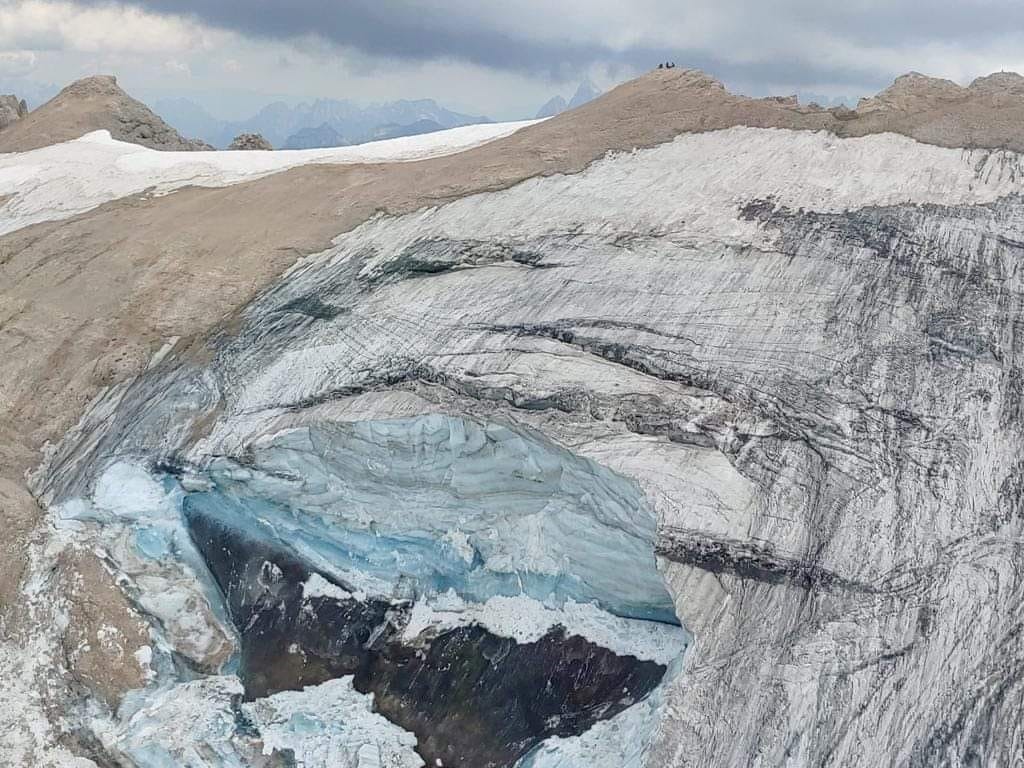Marmolada glacier collapse: a climate warning

Sunday’s disaster on the Marmolada glacier is one example of Italy’s climate risk. Italy is suffering through a series of heat waves, which contributed to the disaster and brought the worst drought in 70 years along the Po River, its longest waterway.
The Italian Alps are among the places most critically affected by global warming in Europe: temperatures are increasing almost twice as quickly in the Alps as in the rest of the northern hemisphere. CNR, Italy’s National Research Council, warned that in 25-30 years, the Marmolada glacier would be gone.
The tragedy that struck dozens of hikers and mountaineers has shaken us all deeply. We mourn the dead and express our sympathy to their families and the injured. It is, however, a tragedy that must make us reflect. The disaster struck one day after a record high temperature of 10 degrees Celsius was recorded at the glacier’s summit. Italy currently has about 920 glaciers, almost entirely in the Alps. In the last 20 years, Italy has lost 25 percent of the water from those shrinking glaciers and melting glaciers and permafrost weakens the mountains, causing glacier collapse, rockfalls, landslides, mudflows, debris and slushflows.
Politicians blame the climate, but then do nothing to try and mitigate the effects of our increasingly heavy ecological footprint.
Only a few years ago, a public administrator from Canazei, in supporting the enlargement of the ski resort on the Marmolada, the highest peak in the Dolomites, recognised by UNESCO as a world heritage site, stated that the mountain could even bear twice as many skiers. Again, up until the day before the tragedy, public administrators from Trentino and Veneto were advocating a cableway connection from Alba di Canazei to Passo Fedaja and close to Punta Rocca, where the glacier broke off. The administration of Canazei wanted the new cableway to reach Punta Rocca, with a 65-metre-high mast standing on the glacier.
Besides that, entrepreneurs in Val Gardena/Grödnertal have long been advocating a new lift from Fedaja over Pian dei Fiacconi to Punta Rocca: that ski lift – had it been built – would have been in the path of the avalanche triggered by the collapse of the glacier last Sunday.
This tragedy, which has struck Italian and world public opinion so deeply, should make us reflect. Mountains are no amusement park where to build ever bigger ski resorts, with ever longer cable cars for hit-and-run tourism. Mountains cannot be trashed and modified at will.
And while Italy’s Prime Minister said that government must reflect and take measures to make sure similar events have “a very low probability of happening or can even be avoided” it is up to each and everyone of us to do our bit and reduce our individual carbon footprint, as climate scientists’ consensus on human-made warming is unequivocal.
We should, however, never forget that mountains have never been and never will be a safe place, only knowledge, experience, preparation, judgement, respect and caution can reduce the inherent risk, but will never be able to bring it to zero.